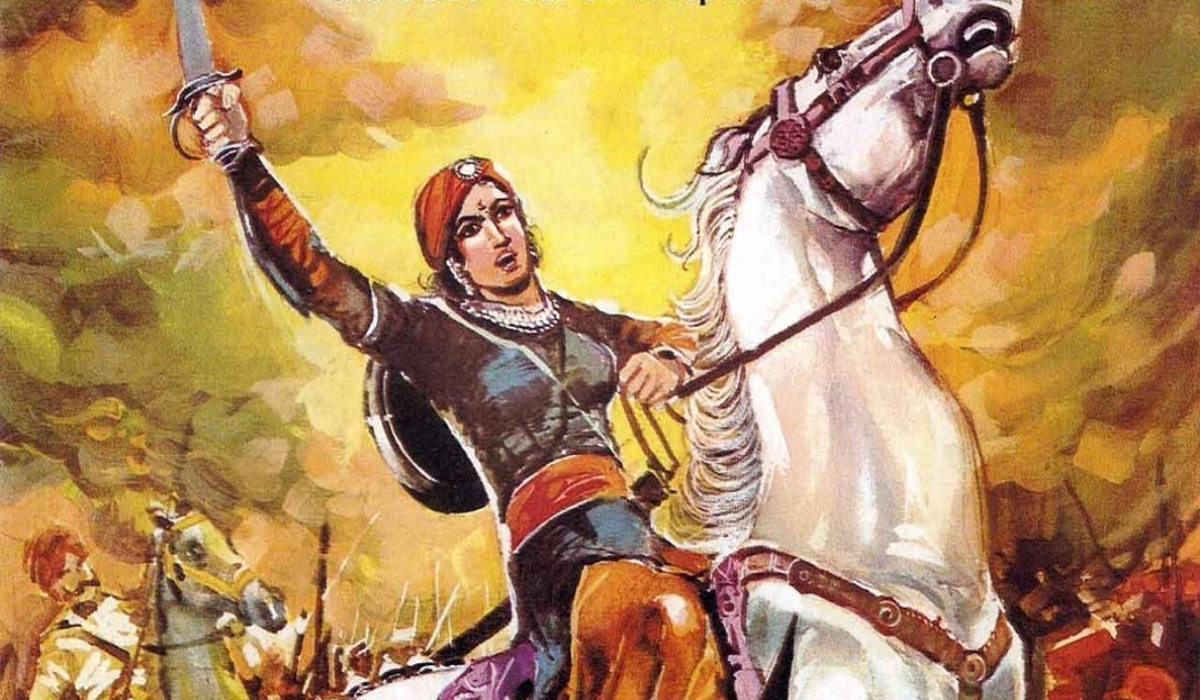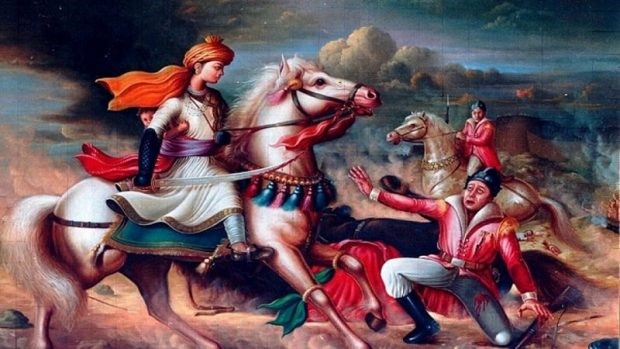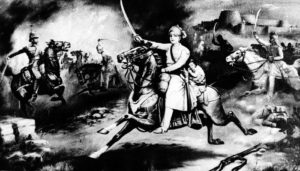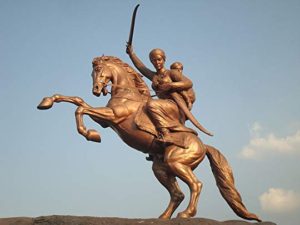
In our history books, history has been witnessed through the lens of male narrative. An involuntary consequence of it is that female narrative has been subdued and we often miss out on stories of amazing women that have shaped history as much as men around us. An example of this is the Mughal Era. We know the stories of magnificent Mughal rulers but several women in this part of the world have also played their part in shaping the narrative of the Subcontinent. One of them was the Hindu Rani of Jhansi, Lakshmi Bai.

Lakshmi Bai was an aristocrat (noblewoman) whose upbringing was done by her father.
She was not raised to be timid, rather have a voice. She was an expert at horse-riding, defence, and fencing. So charismatic and stubborn, her characteristics were that she never took no for an answer. She had a knack of persuading people to do her bidding. At one instance she joyously said that she is destined to have ten elephants rather than just one.
She was destined to be queen. For this, Lakshmi Bai was married to the Maharaja of Jhansi, Gangadhar Rao. She assisted her husband in forming a bilateral relationship with the British for the state of Jhansi. The British helped stabilize the state before reinstating Gangadhar as king. She had a son with the king but he passed away when he was an infant and out of grief, the couple adopted a son. However, Gangadhar Rao soon left her widowed in 1853. The responsibility of governing Jhansi as a ruler fell on her and she accepted it readily. Her acceptance meant that she willingly gave up her traditions of purdah, shaving of the head and wearing of white clothes after the death of her husband.
As queen, she was known to be a kind soul. She would wake up early in the morning, meditate for a couple of hours before taking a stroll in her state. During this stroll, she would accommodate the underprivileged by giving them alms. Her next task was to open a session in her court discussing important socio-political matters. The masses were in her favor and nobody opposed the rule of the queen.

However, at the time, the British were following the Doctrine of Lapse. According to this doctrine, in the absence of a male heir after the death of a king, the British would annex the land. Rani tried everything in her power to persuade the British as she had an adopted male heir but the British were not interested in a settlement. Eventually, they annexed her land. She was forced to stay within the confines of her castle and was provided with a monthly pension to survive. Soon after, the Indian Mutiny began. Indian sepoys of the British Army were agitated due to the paper cartridges that had to be bitten off before use. The problem, however, was that these cartridges were made of beef and pork. This did not settle well with the Muslim and Hindu sepoys and they started a revolt against the British.
During the events of the Indian Mutiny, Lakshmi Bai was temporarily reinstated as the ruler of Jhansi. She was not a part of the revolt carried out by the sepoys, rather she was informing the British about their movement which eventually earned their trust. She also worked extensively to improve the image of the British among her own people in order to restore peace and eradicate mistrust. Rani was eventually threatened by the sepoys to financially assist them otherwise they would destroy her state and its people. She informed the British about the situation and bargained with the sepoys. But, the British framed her of treason and they soon marched on Jhansi.
Rani decided to consult her people and decide between surrendering herself or fighting the British alongside her.
Her people decided to fight for their homeland with her and fight for their queen. Her influence was so much on her people that women also played an active part in the war – by helping the wounded and loading the ammunition. The British officers marched on Jhansi and caused severe damage to the state. Amidst the war, Lakshmi Bai was riding a horse and fighting off the British army. Her efforts could not bear fruit as she died fighting the war. Her death was not in vain. She died a martyr. She is still remembered by the people of the Subcontinent. The most interesting fact was that many British officers recognized her talent and skill of a leader and of a military fighter. Her arch nemesis, General Rose himself admitted that the Rani of Jhansi was the bravest and best military leader of the rebels.

A woman of her caliber was able to outsmart the British who were ruling British India at that time. Lakshmi Bai was able to lead Jhansi in a way which its previous rulers could not. She was able to normalize the situation in Jhansi during the time when her state was threatened by sepoys. Lakshmi Bai had an idea of what she wanted and she knew how to get there. She could have easily persuaded the British on merit to not annex her state.
Take this poll to tell us about your opinion on the female narrative of Rani Lakshmi Bai.
cover image via thebetterindia.com




